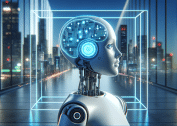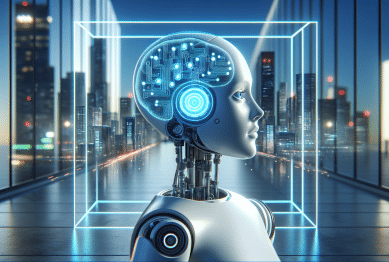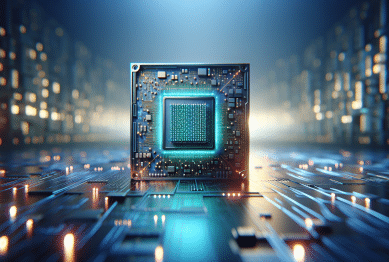Curious about artificial intelligence’s impact on technology and daily life? Discover how current AI trends are shaping everything from business automation to personal privacy, and what to consider as these advancements continue to evolve.
The Rise of AI in Everyday Life
Artificial intelligence is quietly transforming how people live and work. Modern AI applications, from voice assistants on smartphones to content recommendations online, leverage deep learning and machine learning to anticipate needs. This shift means tasks that once required manual input, such as organizing photos or scheduling meetings, can now be managed more efficiently by intelligent software. The presence of AI in home devices like thermostats and security cameras illustrates its ability to learn your preferences and habits, delivering personalized experiences with minimal effort required from users.
Automated transportation represents another compelling area where artificial intelligence is impacting everyday life. Adaptive cruise control, assisted parking, and navigation systems use AI algorithms to analyze traffic and environmental data. These solutions increase convenience and safety, heading toward a future where fully autonomous vehicles may become widely accessible. The seamless integration of AI into mobility solutions means the technology is quietly reshaping how daily commutes, deliveries, and long-distance travel are experienced.
Household robots and virtual helpers are also seeing steady improvements due to advances in natural language processing and perception. Devices like robotic vacuum cleaners or smart speakers not only perform basic chores but also adapt to different environments and respond to complex commands. AI-driven home automation platforms can manage energy consumption, monitor for security breaches, and even adjust lighting based on user routines. This gradual yet impactful adoption of AI is making life smoother and more interconnected.
AI Transforming Business and Industry
Businesses are rapidly adopting artificial intelligence to optimize core operations and enhance decision-making. AI-powered analytics transform vast amounts of unstructured data into actionable insights. This approach enables companies to improve customer experiences by predicting preferences and delivering tailored solutions. For example, industries as varied as retail, finance, and manufacturing are automating supply chains and forecasting inventory needs with AI-driven models, reducing human error while increasing efficiency.
Process automation is another trend gaining traction. Repetitive tasks in sectors like healthcare, insurance, and banking—think invoice processing or claims management—are being delegated to AI-powered bots. These systems can quickly and accurately review documents, perform risk analysis, and flag potential discrepancies. The benefits of automation free up human talent for more complex problem-solving roles, fostering innovation and client focus. Artificial intelligence is gradually redefining many job roles and skill requirements in these sectors.
A significant aspect of business intelligence now relies on predictive analytics and AI forecasting. From market analysis to fraud detection, machine learning models scrutinize patterns and detect anomalies that would be invisible to the naked eye. These tools help organizations manage risk, respond to changing conditions, and anticipate market shifts. As AI technology matures, businesses large and small find themselves rethinking strategies for long-term success, with artificial intelligence at the heart of transformation.
AI and Automation in Science and Medicine
The impact of artificial intelligence in science and medicine is profound. Medical researchers are harnessing machine learning to analyze vast datasets of patient records, genomic information, and medical images, identifying patterns that can accelerate diagnosis and improve treatment options. AI-assisted imaging tools support radiologists in detecting subtle anomalies, strengthening early detection and intervention. As technology advances, medical professionals increasingly depend on AI to support their expertise and broaden diagnostic capabilities.
AI is also influential in drug discovery and personalized medicine. Machine learning algorithms can simulate thousands of potential chemical compounds and match treatment regimens with patient-specific genetic profiles. By streamlining this process, AI helps researchers uncover promising therapies faster, potentially bringing life-saving treatments to market sooner. These advancements are revolutionizing how new illnesses are addressed and how medical interventions are selected for individuals.
Outside healthcare, scientific disciplines like climate science and physics utilize AI models to process immense data streams from sensors and detectors. These models predict weather patterns, analyze seismic activity, and model astronomical phenomena with increasing accuracy. By taking over routine analysis, AI frees scientists to focus on interpreting complex results and advancing the frontiers of knowledge. This role of artificial intelligence in scientific discovery promises both efficiency and new possibilities across disciplines.
Ethical Considerations and Data Privacy
The rapid adoption of artificial intelligence brings urgent questions around ethics and privacy. AI systems often require substantial data to function, which can include sensitive personal information. Concerns have surfaced regarding data collection, algorithmic bias, and transparency. Individuals and institutions are seeking frameworks to ensure AI applications respect privacy rights and reduce unwanted influence. Responsible use of AI means prioritizing data security and user consent in all implementations.
Algorithmic bias is another growing concern in artificial intelligence. If training datasets reflect historical patterns or systemic disparities, AI models may inadvertently perpetuate those biases. This can impact decisions involving hiring, lending, or medical treatment. Policymakers and industry leaders are investing in research to develop fair AI practices and introduce safeguards, like explainable AI, to validate outcomes and foster user trust. Ethical deployment is essential to making AI accessible and equitable for all.
Regulation is evolving to match the pace of artificial intelligence. Governments around the globe are drafting new guidelines to govern data use, software transparency, and system accountability. The European Union’s General Data Protection Regulation (GDPR) serves as an example of policy shaping the responsible use of AI. Being aware of privacy frameworks and consumer rights helps users and organizations navigate the digital landscape more confidently. The continued dialogue on AI ethics ensures innovation keeps pace with public values.
Opportunities and Challenges in AI Adoption
Embracing artificial intelligence opens vast opportunities across industries, but many organizations face challenges during adoption. Integrating AI into legacy systems, accessing skilled talent, and managing costs are common hurdles. For small businesses, cloud-based AI solutions offer flexibility and scalability, allowing exploration of advanced technology without significant upfront investments. Adopting AI strategically means balancing resources, expertise, and security as adoption progresses.
Workforce transformation is an ongoing theme as AI becomes prevalent in the workplace. Automation can lead to the redefinition of job roles and the emergence of new career paths, emphasizing the value of continual learning. Reskilling initiatives, both in-house and through academic partnerships, support employees in navigating shifts in demand. Higher education platforms increasingly offer structured AI courses, making knowledge more accessible for diverse professional backgrounds. Building digital literacy is key for sustainable growth in an AI-driven economy.
Despite the promise, organizations need to consider long-term challenges in AI management, including software maintenance, data governance, and regulatory compliance. Collaborations between public and private sectors are important in developing responsible AI ecosystems. Transparent communication, cross-disciplinary cooperation, and user education can ensure that technology adoption benefits both businesses and society. As artificial intelligence continues to advance, those who proactively address these issues position themselves for lasting success.
How AI is Shaping the Future of Technology
The future of artificial intelligence promises to be dynamic and integrative. Edge computing and the Internet of Things (IoT) are combining with AI to make devices smarter, more responsive, and capable of real-time learning. From wearable devices monitoring health to industrial machines optimizing production, AI is woven into every layer of innovation. This interconnectedness increases autonomy and flexibility across tech ecosystems, empowering smarter services and adaptive infrastructure.
AI-driven creativity is emerging as a trend in art, music, and design. Generative AI models can compose music, create visual artwork, and assist writers, enabling collaborative workflows between humans and algorithms. The proliferation of accessible AI tools encourages experimentation among professionals and enthusiasts alike. By breaking traditional barriers in creative industries, artificial intelligence fosters new forms of artistic expression and reshapes the creative process itself.
The pace of AI progress raises questions about future possibilities—from artificial general intelligence to enhanced decision support systems. Tech leaders anticipate evolving roles for AI, both as a collaborator and as a catalyst for further innovation. As research deepens and applications diversify, a commitment to ethical innovation and broad access remains essential. Exploring emerging trends in artificial intelligence can help users and organizations prepare for a future where technology is an even more integral part of everyday life.
References
1. European Commission. (n.d.). Artificial Intelligence. Retrieved from https://digital-strategy.ec.europa.eu/en/policies/artificial-intelligence
2. National Institutes of Health. (n.d.). Artificial Intelligence in Medicine. Retrieved from https://www.nih.gov/news-events/nih-research-matters/artificial-intelligence-medicine
3. Brookings Institution. (n.d.). What is Artificial Intelligence? Retrieved from https://www.brookings.edu/research/what-is-artificial-intelligence/
4. Stanford University. (n.d.). Artificial Intelligence Index Report. Retrieved from https://aiindex.stanford.edu/report/
5. U.S. Department of Energy. (n.d.). Artificial Intelligence at DOE. Retrieved from https://www.energy.gov/artificial-intelligence-doe
6. World Economic Forum. (n.d.). 9 technology mega-trends shaping the future of society and business. Retrieved from https://www.weforum.org/agenda/2017/06/9-mega-trends-shaping-the-future-of-technology/









